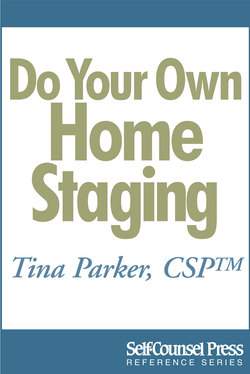Читать книгу Do Your Own Home Staging - Tina Parker - Страница 8
На сайте Литреса книга снята с продажи.
The Developing Industry of Home Staging
ОглавлениеBefore home staging became commonplace in real estate, it was primarily used as a last resort; if a home did not sell within a specified time, a professional home stager was called in. Home staging grew in popularity because homes sold quickly after being staged and, quite frequently, attracted amounts close to their asking prices. Eventually, it became normal practice for real estate agents to suggest various tips for preparing a home for sale, mostly de-cluttering and a good cleaning.
As the home staging industry grew, it became known for more than just de-cluttering and cleaning. More and more, real estate agents were paying attention to the effectiveness of staging a home, and it was the forward-thinking agents who called in professional home stagers to prepare homes before they went onto the market. Doing so made their listings look far better than their competitions’ and practically guaranteed that their properties would sell before others in the same neighborhood. Forward-thinking home owners also had the foresight to see that home staging maximized the market value and increased the equity of their property.
Home staging is a young, self-regulated industry and has only recently begun to develop. New home staging training companies are forming rapidly every day. The Real Estate Staging Association (RESA) was formed as an industry-wide trade association in 2007. Its mission is to cultivate industry-wide standards for all stagers, regardless of their
training, certifications, designations, or backgrounds. It also provides support and continuing education to maintain a level of excellence in the industry. You can find out more by visiting the website: www.realestatestagingassociation.com.
RESA conducted a study on properties that were professionally staged from January 2007 to February 2008 and found remarkable results. RESA looked at the amount of time non-staged, marketed properties spent on the market without selling, and compared that to the amount of time these same properties spent on the market when both staged and marketed. In one case, homes that spent 120 days on the market unstaged (without ever selling), sold after only 26 days when staged. In another, homes that spent 102 days on the market unstaged (without ever selling), sold after only 45 days when staged. RESA also found that vacant homes sold on average 40 days after staging, while occupied homes sold on average 38 days after staging.
Fast forward several years from now and home staging will be a prerequisite for selling a property, much like the home inspection industry, which we barely had 15 years ago. Potential home buyers will come to expect to view properties that have been staged and will walk away from those that have not been staged.
